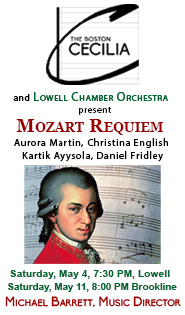Bruce Liu brings a remarkable array of nuanced artistry to Boston debut

Bruce Liu perfumed a recital Saturday night at Jordan Hall for the Celebrity Series in his Boston debut. Photo: Christopher Koestlin
It is, or now should be, a truth universally acknowledged that a late-March Nor’easter is no match for Bruce Liu’s local fan base. Despite the unremittingly nasty elements, a full house turned out to witness the Paris-born, Montreal-based pianist’s Boston (and Celebrity Series) recital debut Saturday night at Jordan Hall.
And well they might: Liu, who was the first-prize winner of the 2021 Chopin Piano Competition, is no garden-variety virtuoso. True, he’s got technique to burn, as Saturday’s lineup of works by Jean-Philippe Rameau, Frédéric Chopin, Maurice Ravel, and Franz Liszt reminded again and again.
But the 26-year-old keyboardist brings to his playing a mature musician’s sensibility to issues of balance, rhythm, and phrasing as well as a true artist’s grasp of color, space, and shape. In practice, this meant his selections Saturday never wanted for a place to go or something meaningful to say.
Chopin’s Variations on “Là ci darem la mano” from Mozart’s Don Giovanni, for instance, offered a bracing mix of dreamy, rhapsodic episodes and full-bodied fireworks. Amid those extremes came an abundance of character.
Liu’s account of its theme was at once gracious, coy, and faultlessly enunciated, while he made impressively cogent sense of the second and fourth variations’ furious runs. In the “Sempre sostenuto” movement, the pianist’s phrasings were delightfully impish while his gestures in the closing “Alla Polacca” swaggered.
Much of the success of Liu’s approach owed to his total command of that seemingly simplest of musical concepts: dynamic range. Indeed, Liu’s ability to spotlight textures of real delicacy and introspection was marvelous, especially during the Introduction and over the first part of the fifth variation.
So was his capacity to let loose thunder. However, those moments, which were always bold and mighty, were also consistently shaded and controlled. The results were vivid and multidimensional.
A similarly robust approach served a set of six keyboard works by Rameau very well. Liu delivered a rhythmically pert, buoyant account of “Les Cyclopes” and a shapely, flowing one of “Les Tendres Plaintes.” His take on a trio of excerpts from the Suite in G major—“Les Sauvages,” “La Poule,” and Menuets 1 and 2—featured, respectively, intense, crystalline ornamentations; wry vigor; and graceful rhythms.
At the same time, the “Gavotte et six doubles” unfolded with impellent logic and a terrific sense of momentum. Especially over the final three sections, Liu drew out the movements’ thematic connections while boldly emphasizing their stylistic contrasts.
He took similar pains with Ravel’s luminous, exacting Miroirs. “Noctuelles” emerged in shapely, delicate paragraphs. “Oiseaux tristes” dripped with the heat of a summer’s day: rich, hazy, languid.
In “Une barque sur l’océan,” Liu teased out the shimmering qualities of its cascading figurations while his spry, chiseled attacks in “Alborada del gracioso” snapped with knavish glee. “La vallée des cloches” was the opposite: a hypnotic study of space and sonority.
Taken together, this was a revelatory Miroirs. So, in its way, was Liu’s account of Liszt’s Réminiscences de Don Juan de Mozart.
Granted, the last is no masterpiece. Essentially a potpourri of themes from Don Giovanni (including a series of variations of “Lá ci darem la mano”), the score, in lesser hands, can amount to little more than seventeen minutes of schlock.
But Liu is not that kind of pianist. Opting for rather aggressive tempos, he tore into the Réminiscences, drawing out the full orchestral range of his Steinway and hardly letting any of the music’s many little details escape him. What resulted was an account of this curiosity that was engrossing: rhythmically secure yet eminently flexible, music that sang and danced as it became increasingly, fiendishly more complex.
On Saturday, those intricacies were central to the Réminiscences’ musical argument. Liu illuminated the florid passagework that is essentially developmental, drawing it out in contrast with the score’s merely coloristic gestures. What emerged certainly glittered. But it ended up paying tribute to Liszt the visionary composer at least as much as it did Liszt the keyboard whiz.
What’s more, Liu never lost sight of the underlying spirit of this fare: exacting and exhausting, sure, but also knowing, playful, and fun. Certainly, one stands to reason, any virtuoso can learn the Réminisences’ notes. Precious few can find in its pages so many episodes of musical worth. At Jordan Hall, Liu triumphed on the paths less traveled.
His encores were, likewise, smartly done. Alexander Siloti’s arrangement of J. S. Bach’s B-minor Prelude came across tranquilly, while Chopin’s Minute Waltz truly lilted. Perhaps dusting off Schumann’s encomium for Chopin—“Hats off, gentlemen—a genius”—and reapplying it to Liu is taking things a step or two too far. Then again, maybe not.
Celebrity Series presents Isidore String Quartet playing music by Haydn, Childs, and Beethoven 7:30 p.m. Wednesday at Pickman Hall. celebrityseries.org
Posted in Performances


